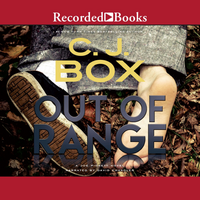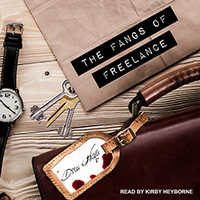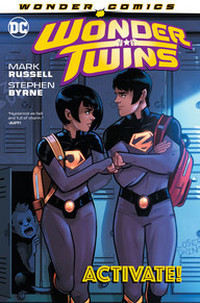My 2020 Wrap up continues and now we’re on to the Non-Fiction list. I had little trouble getting this down to 9 books (couldn’t be satisfied with any of the candidates for 10, although Duhigg almost scored it with the other book by him I listened to this year). But when started filling in the details, I was surprised that I’d given so many of these 3 or 3 1/2 stars. But these are the ones that stuck with me through the year; the ones I cited in conversation; that I thought about when reading something else or watching something on TV. Really, that’s what’s important, right?
As always, I only put books that I’ve read for the first time on this list. I don’t return to NF books (outside of looking up things for one or three points), but occasionally I do—for example, The Pleasures of Reading in an Age of Distraction by Alan Jacobs would get a permanent spot on this list, were it not for this rule.
(in alphabetical order by author)
 Grit: The Power of Passion and Perseverance
Grit: The Power of Passion and Perseverance
My original post
A fascinating mix of psychological research, case studies, and personal anecdotes. Duckworth structured this in such a way that not only it was informative and educational, it was enjoyable and motivational. The subject was interesting, the approach challenging, and didn’t always give the answers you expected. Duckworth made it clear that with the right mindset and time, it was possible to increase your own grit and find a measure of success. It’s not a one-size-fits-all solution, nor is it a promise of instant success. Just a reassurance that smart work can pay off.


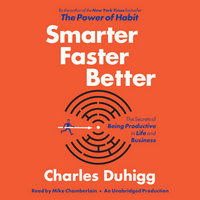 Smarter Faster Better: The Secrets of Being Productive in Life and Business
Smarter Faster Better: The Secrets of Being Productive in Life and Business
by Charles Duhigg, Mike Chamberlain (Narrator)
My original post
It’s not a how-to book, it’s not self-improvement, it’s largely about the science/study/understanding of productivity. I found it just as fascinating as previous book and can see where it’d be a useful guidebook for people in some sort of position of authority in an organization. Yet, it’s an improvement over Duhigg’s previous book because there are indications of how one could apply this to themselves/their organizations.
Also, Duhigg shows us his process while illustrating his own application of the book’s lessons—which I really enjoyed. I find his approach to putting together a book very interesting, what and how he includes something is almost as interesting as what he does with it.


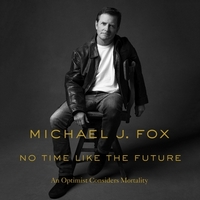 No Time Like the Future: An Optimist Considers Mortality
No Time Like the Future: An Optimist Considers Mortality
My original post
I’ve been a fan of Fox’s for as long as I can remember, and have watched most of the projects he discussed here (and many others). Like many, I’ve been impressed with the way he and his family have dealt with his Parkinson’s Disease and how they’ve worked to help everyone with it.
So this book, where he’s frank about the troubles he’s had recently and the way they’ve challenged his natural optimism really struck a chord with me. The book is a balance of struggle and victory, setback and progress—all told with a sharp wit that’s sure to charm.


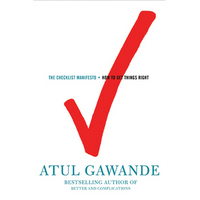 The Checklist Manifesto: How to Get Things Right
The Checklist Manifesto: How to Get Things Right
by Atul Gawande, John Bedford Lloyd (Narrator)
My original post
It’s a simple premise—a well-developed checklist can make even the most complex task doable and save even experts from horrible oversights/mistakes when implemented correctly (although there are things that just can’t be made into a checklist). As hard as it might be to fathom, seeing how checklists have been used by pilots, surgeons, investment bankers and the like is utterly fascinating. There’s just no way that I can make it sound like it.


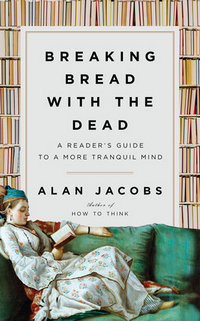 Breaking Bread with the Dead: A Reader’s Guide to a More Tranquil Mind
Breaking Bread with the Dead: A Reader’s Guide to a More Tranquil Mind
by Alan Jacobs
My original post
Jacobs hits another one out of the park. He asks how can we read and appreciate books from the past plagued by things that would not be tolerated today? Racism; slavery; different expectations for family, male and female roles; and so on. (many of these can apply to books and people who aren’t from previous centuries, but are in the cubicle next to us or around the Thanksgiving table—but Jacobs doesn’t spend time on that, but if you can’t make the application, I don’t think you’re paying attention).
Thoughtful, thought-provoking, erudite, with quiet humor, Jacobs will make you think, aspire to be a better reader, and more widely-read, too. I’m going to have to read this one a couple of more times to mine it for detail, and I’m looking forward to it.


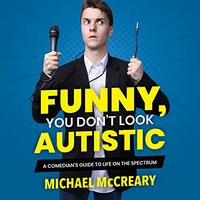 Funny, You Don’t Look Autistic
Funny, You Don’t Look Autistic
My original post
McCreary shows a side of ASD that many people probably don’t realize exists. And even if they do, hearing about it from someone with it, helps you understand it better. McCreary gives us his perspective on things in a way that’s easy to digest. His humor (mostly pointed at himself and autism) provides some lightness to something that’s usually not treated that way.


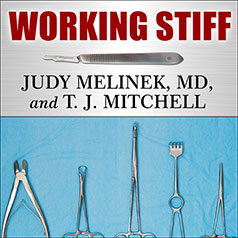 Working Stiff: Two Years, 262 Bodies, and the Making of a Medical Examiner
Working Stiff: Two Years, 262 Bodies, and the Making of a Medical Examiner
by Judy Melinek, MD, & TJ Mitchell, Tanya Eby (Narrator)
My original post
This is Melinek’s account of her training to be a forensic pathologist in NYC—a great place to train, because what won’t you see there? She talks about the deaths that are the result of crimes, the kind of thing we see on every crime show in the world. But that’s not primarily the job and that’s not the focus of the book—mostly it’s the result of an accident, long-term disease, and so on. Which is actually frequently more interesting than the criminal stuff.
What makes this already compelling book all the better (as a book, not as an actual life) is that September 11, 2001, was a few weeks after her residency began. Her description of dealing with the aftermath (both in terms of the dead and the events that followed) is just sobering, and a reminder of the unspeakable reality of that day.


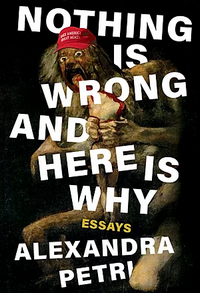 Nothing Is Wrong and Here Is Why
Nothing Is Wrong and Here Is Why
My original post
If this was a straight-forward collection of essays about politics and cultural issues, I’d probably not recommend it. I don’t know if I’d have finished it (although, with Jacob’s help (see above), maybe I could’ve). But the fact that it’s a collection of humorous essays/columns? Oh yeah, sign me up.
Even when I think she’s wrong about a topic, she made me grin and/or laugh. Usually made me think. I was always impressed with her creativity.


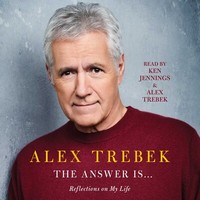 The Answer Is . . .: Reflections on My Life
The Answer Is . . .: Reflections on My Life
by Alex Trebek, Narrated by: Ken Jennings, Alex Trebek
My original post
Even if we hadn’t lost Trebek this year, this would’ve landed on this list. But given how much we’ve all been talking about him lately, it has to show up.
He tells his story in short chapters, full of self-depreciation and more swearing than you’d expect (he explains why). If you can hear/read him talk about his wife, his children, his cancer—and the effect that the cancer’s having on his wife and children as he prepares for death without being moved? There’s something wrong with ya. At that point, any thought I had about pretending to be objective and analytical went out the window.
My sole complaint is that the audiobook is only four-and-a-half hours long. It’s just not long enough. I get that he wasn’t trying to be exhaustive—and I don’t necessarily want that—but when you start to hear these quick stories about his growing up, his getting established in the business (either in Canada or the States), his friendships…and of course, Jeopardy!—you just want it to keep going for hours and hours.

![]()


